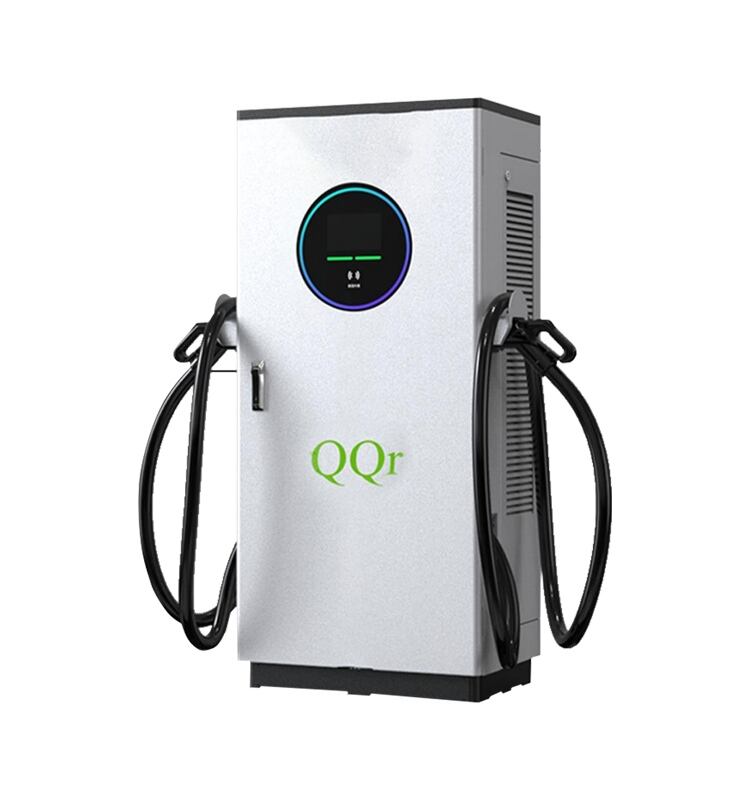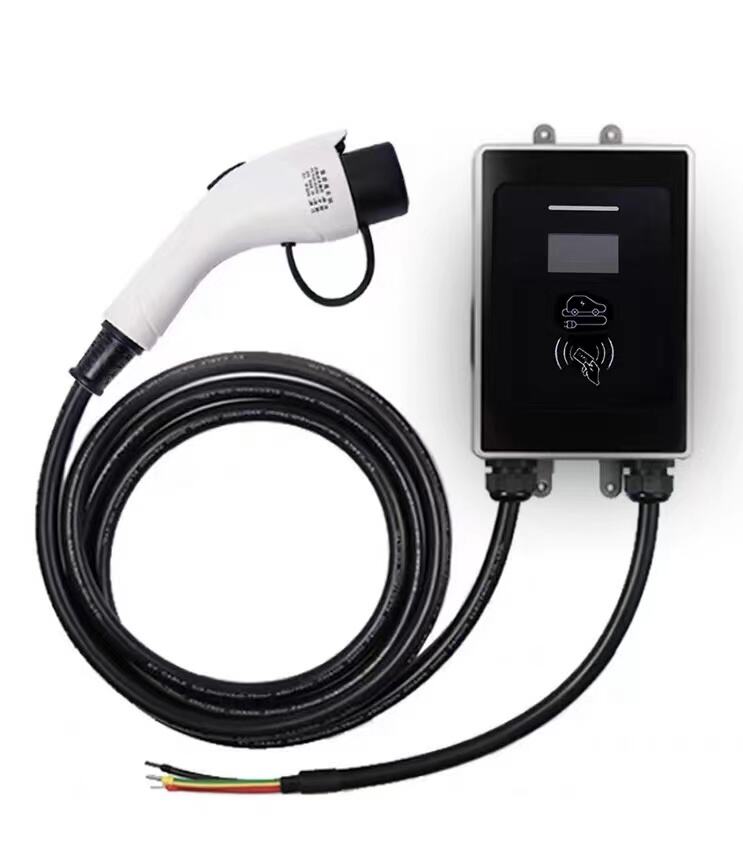The Advantages of DC Fast Chargers in Modern EV Infrastructure
Understanding DC Fast Chargers in EV Infrastructure
DC Fast Chargers are pivotal components in the electric vehicle (EV) infrastructure due to their high-powered capabilities, significantly reducing recharge times. Operating at power levels ranging from 50kW to 350kW, these chargers provide an efficient refueling solution for EV owners, especially in public locations. They are essential for drivers who need a rapid charge during long-distance travel, offering a quick and convenient way to replenish battery power.
DC fast charging distinguishes itself by using direct current (DC) to expedite the recharging process, allowing an EV to achieve approximately 80% battery capacity in 30 minutes or less. Unlike alternating current (AC) chargers, which require the onboard converter in the vehicle to transform AC to DC—prolonging charging time—DC fast chargers deliver DC power directly to the vehicle's battery. This avoidance of the conversion process not only accelerates charging but also enhances the practicality of EV fast chargers in both urban and commercial environments, making them indispensable for modern electric transportation networks.
Key Advantages of DC Fast Chargers in EV Infrastructure
DC Fast Chargers offer numerous benefits that significantly enhance the efficiency and accessibility of electric vehicle (EV) charging infrastructure. Firstly, their faster charging throughput allows multiple EVs to be charged in a short timeframe, maximizing the utility of charging stations. This swift operation translates to improved customer service at public charging locations, as more vehicles can be served quickly without long waits. Consequently, this efficiency can help ease congestion at busy stations.
Moreover, reduced waiting time is a crucial factor as urbanization increases and people become more time-conscious. Fast chargers mitigate range anxiety—a common concern among potential EV buyers—by enabling drivers to recharge quickly. This convenience encourages more individuals to switch to electric vehicles, promoting environmentally friendly transportation options.
Increased accessibility and flexibility are further facilitated as DC Fast Chargers can be strategically located in high-traffic areas. By positioning these chargers in convenient locations like shopping centers or highways, EV drivers can recharge their vehicles easily while handling everyday tasks. This strategic placement not only supports current EV owners but also attracts new users by showcasing the practicality of EVs.
Lastly, for commercial fleets, these chargers provide a cost-effective solution by reducing downtime associated with charging. The fast charging capability of DC chargers minimizes waiting times, thus enhancing operational efficiency and productivity for businesses reliant on maintaining a mobile fleet. This advantage is essential for businesses seeking to lower operating costs and improve service continuity.
Impact on EV Adoption and Infrastructure Growth
The expansion of EV charging infrastructure is a catalyst for promoting electric vehicle ownership. With increasing numbers of fast chargers, potential buyers are more likely to consider investing in electric vehicles. This growing network of EV charging options alleviates concerns about accessibility and convenience, diminishing one of the major barriers to widespread EV adoption. Fast chargers situated at strategic locations provide users with the confidence that they can easily recharge their vehicles, supporting broader EV integration into everyday life.
DC fast chargers play a crucial role in supporting long-distance travel, making road trips with electric vehicles viable. These chargers provide the necessary boost to EV batteries that allow drivers to cover greater distances without anxiety over running out of charge. This support aligns with the goals of programs like the National Electric Vehicle Infrastructure (NEVI), which aims to develop a comprehensive charging network that facilitates seamless interstate travel.
Enabling fleet operations through a robust EV charging infrastructure is vital as more businesses transition to electric vehicles. Access to DC fast chargers ensures quick turnarounds for commercial vehicles, maintaining service levels across industries such as logistics and transportation. The ability to recharge rapidly minimizes downtime, enhancing operational efficiency and contributing to the overall growth of the commercial EV sector.
Each of these points emphasizes the need for comprehensive EV charging infrastructure that not only supports the growth of electric vehicles but also advances environmental sustainability and economic development, particularly in underrepresented and rural communities.
Relevant Product Options for DC Charging Needs
Efficient AC EV chargers are a sustainable choice for home installations, providing essential energy conservation benefits. However, for commercial venues like shopping malls and corporate car parks, high-capacity units ensure faster charging and quick turnaround, crucial for maintaining business efficiency. Large operations benefit from their high reliability and low downtime, making them ideal for commercial applications. You can explore the Efficient AC EV Charger to understand more about their versatile applications.
The 120KW DC EV Charging Station stands out in retail locations and service stations for its robust performance. It provides swift charging solutions for multiple EV models, balancing efficiency with economic value. Its adaptability to harsh environments ensures it remains a top choice for long-term infrastructure investments.
For those looking to integrate smarter charging technologies, the GTB-AB01 AC Charging Station offers cutting-edge features like advanced energy management and enhanced user interfaces. This station symbolizes the future of energy-efficient, accessible EV charging, tailored for both commercial and personal needs.
Challenges and Considerations in Implementing DC Fast Chargers
Implementing DC fast chargers involves significant challenges, primarily the substantial infrastructure and installation costs. For businesses and municipalities aiming to adopt these advanced charging systems, the initial investment can be daunting. This requires meticulous budgeting and strategic planning to ensure that the benefits outweigh the expenses. Such investments need thorough evaluation to assess the financial feasibility and potential return on investment.
Another key consideration is the technical limitations related to EV compatibility, which can hinder the widespread adoption of DC chargers. Not all electric vehicles are equipped to support rapid charging, necessitating advancements in both vehicle and charger technology. This underscores the importance of developing standards and promoting compatibility across different EV models to facilitate broader implementation.
Furthermore, there are growing environmental impact and sustainability concerns associated with DC fast chargers. While they reduce emissions from combustion vehicles, the energy sources powering these chargers and their lifecycle implications must be scrutinized. Ensuring that the chargers contribute to maintaining environmental credentials without adding to carbon footprints is essential. This requires an integrated approach to sourcing renewable energy and managing the environmental impact of charging infrastructure.
Future Trends in DC Fast Charging Technology
The future of DC fast charging technology is rife with innovations aimed at enhancing charging speed and efficiency. With the development of new battery technologies, charging times are set to decrease significantly, which will likely encourage broader market adoption. Such advancements play a critical role in meeting the needs of EV users, who increasingly demand quicker and more convenient charging solutions.
Another promising trend involves integrating renewable energy sources into the charging infrastructure, offering a greener alternative for electric vehicle owners. By utilizing solar and wind energy, charging stations can reduce their environmental footprint, making the use of electric vehicles even more sustainable. This alignment with green energy principles not only enhances the eco-friendliness of EV fast chargers but also appeals to environmentally conscious consumers.
Government incentives are also pivotal in the widespread adoption of DC fast chargers. Subsidies, tax credits, and other financial supports can alleviate the initial setup costs, making it feasible for both businesses and individuals to invest in this technology. Effective policy measures can significantly lower the financial barriers, accelerating the transition to a more sustainable and efficient transportation infrastructure.

 EN
EN
 AR
AR
 BG
BG
 HR
HR
 CS
CS
 DA
DA
 NL
NL
 FI
FI
 FR
FR
 DE
DE
 IT
IT
 PL
PL
 PT
PT
 RO
RO
 RU
RU
 ES
ES
 SV
SV
 TL
TL
 IW
IW
 ID
ID
 LT
LT
 SR
SR
 SK
SK
 SL
SL
 VI
VI
 ET
ET
 HU
HU
 MT
MT
 TH
TH
 TR
TR
 AF
AF
 MS
MS
 GA
GA
 CY
CY
 HY
HY
 AZ
AZ
 KA
KA
 LA
LA
 KK
KK
 UZ
UZ


